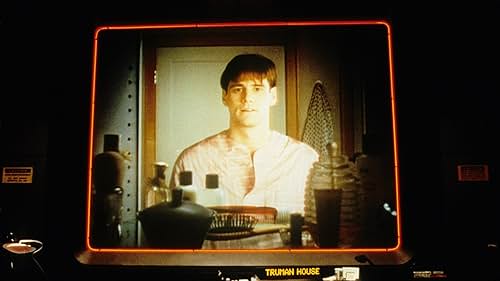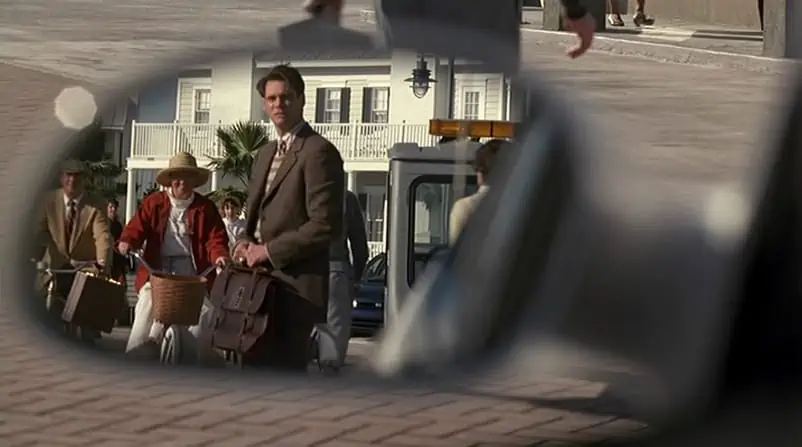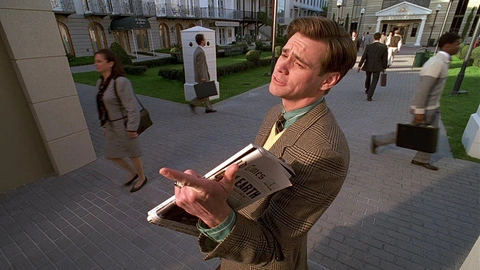🎬 The Truman Show (1998)

🎬 The Truman Show (1998): Breaking Free from a Manufactured Reality
The Truman Show, directed by Peter Weir, is a profound satire that questions the nature of reality, free will, and personal identity. Truman Burbank (Jim Carrey) is an ordinary man living in the idyllic seaside town of Seahaven. Unbeknownst to him, every aspect of his life is staged, and he is the unwitting star of a 24/7 reality show watched by millions worldwide. Every friend, family member, and stranger he encounters is an actor, and the “sky” above him is actually a massive dome that controls every facet of his environment. 📺🏠

Directed by Peter Weir
Shown: Jim Carrey (as Truman Burbank)

As Truman begins to notice strange occurrences—a falling stage light, people repeating patterns, and inexplicable barriers—he grows increasingly suspicious. Driven by a yearning to explore the world beyond Seahaven, he discovers hidden truths and confronts forces determined to keep him from leaving. His desire to pursue his own life, rather than the one crafted by show creator Christof (Ed Harris), turns his journey into a battle for freedom and self-discovery. 🌎🚪
Carrey’s portrayal of Truman is both heartwarming and heartbreaking, bringing depth to a character who radiates innocence, optimism, and resilience. His journey from naivety to self-awareness is captivating, and his struggle to break free resonates deeply with viewers. The film explores the ethics of voyeurism, media manipulation, and the boundaries between reality and entertainment, raising questions about privacy, authenticity, and the power of human curiosity. 🎭👀

The film’s production design and cinematography cleverly mimic the aesthetics of a perfect suburban life, only to subtly reveal cracks in the illusion as Truman begins to unravel the truth. Weir’s direction crafts a delicate balance between humor and drama, leading to a deeply thought-provoking narrative that engages viewers on multiple levels. 📹🌄
The Truman Show ultimately serves as an allegory for modern life, posing a powerful message about autonomy, self-determination, and the courage to break away from societal expectations. Its timeless relevance, combined with Carrey’s nuanced performance, has cemented it as a beloved and insightful cinematic masterpiece that encourages us all to take a closer look at the world around us. 🌠💡












